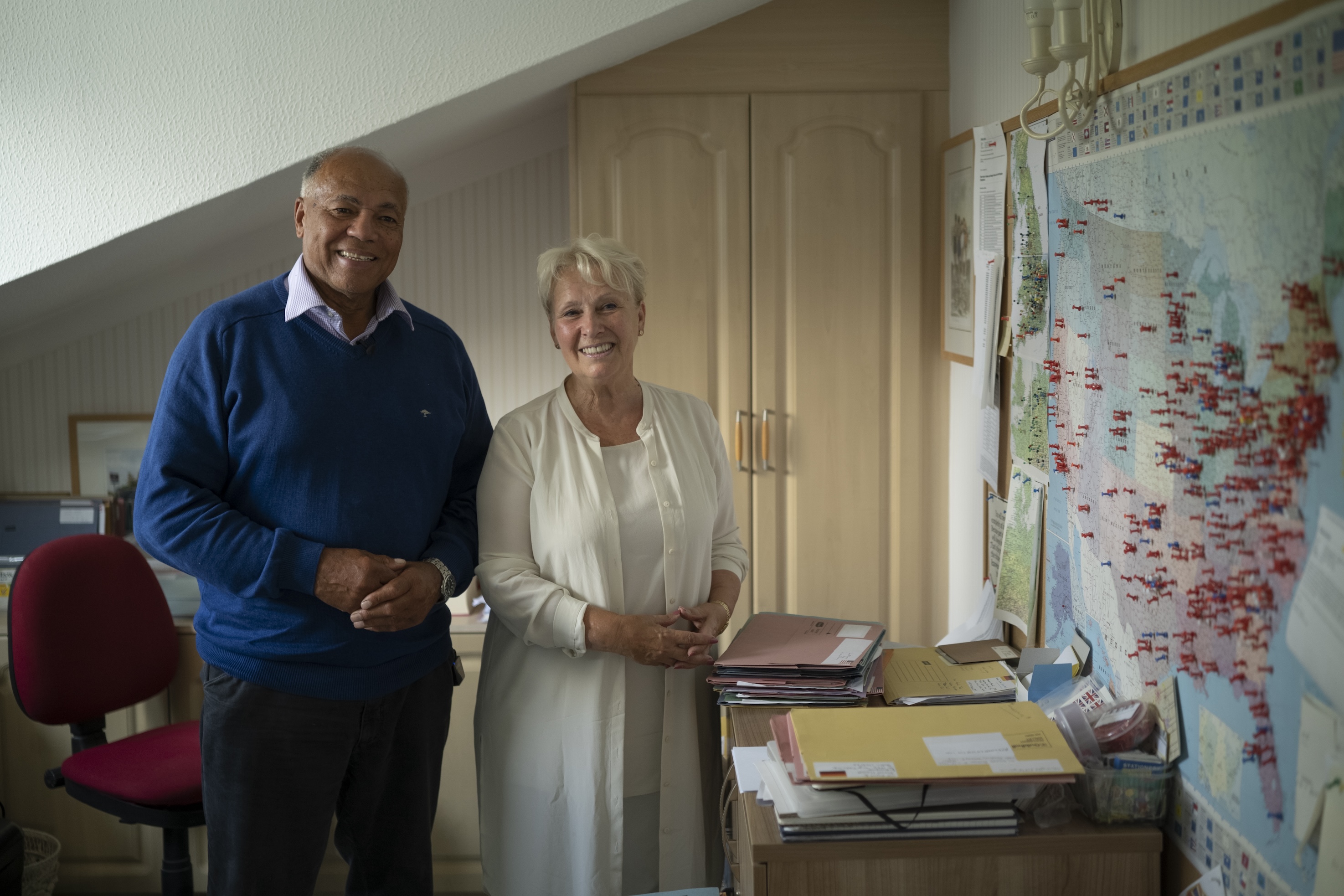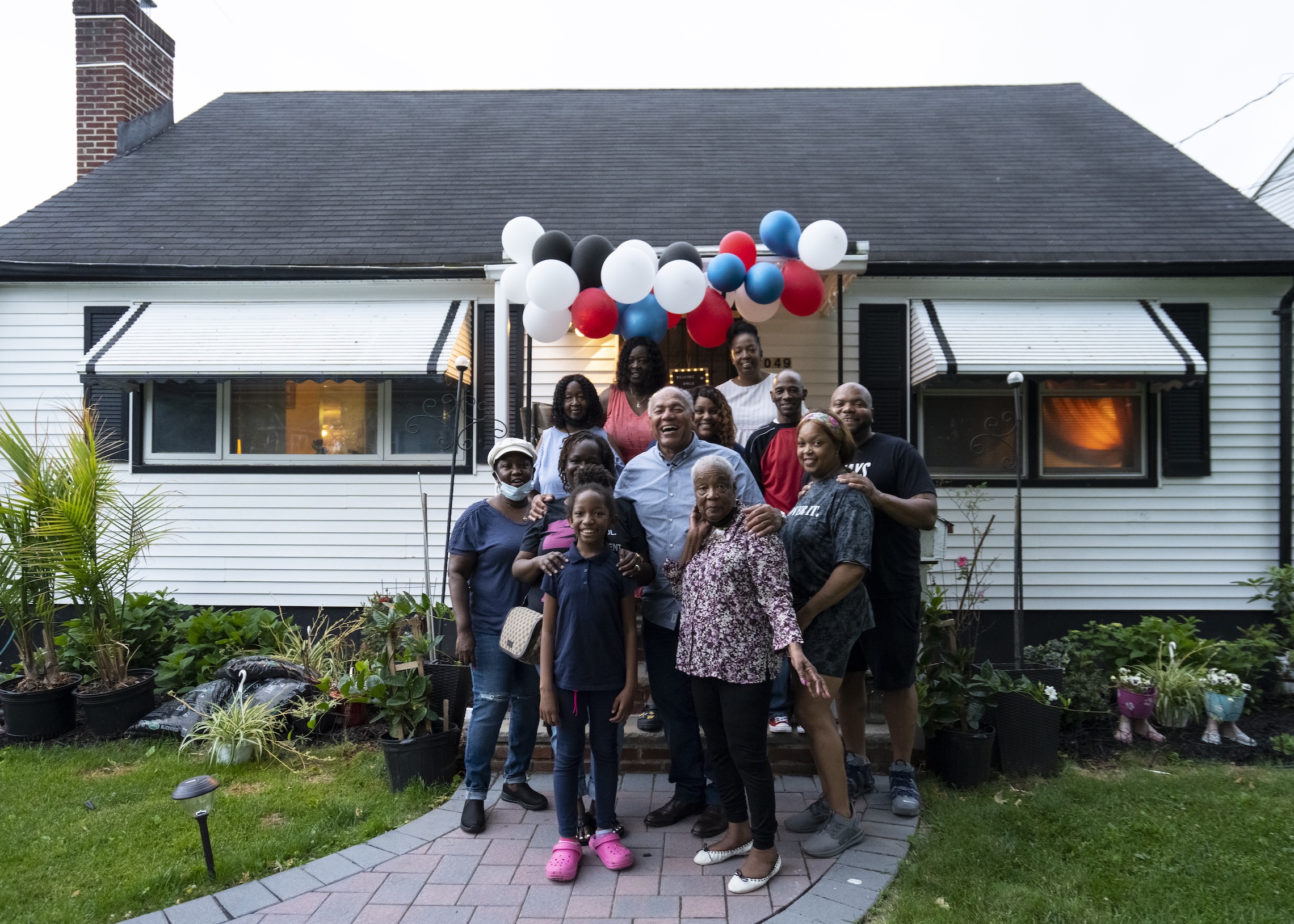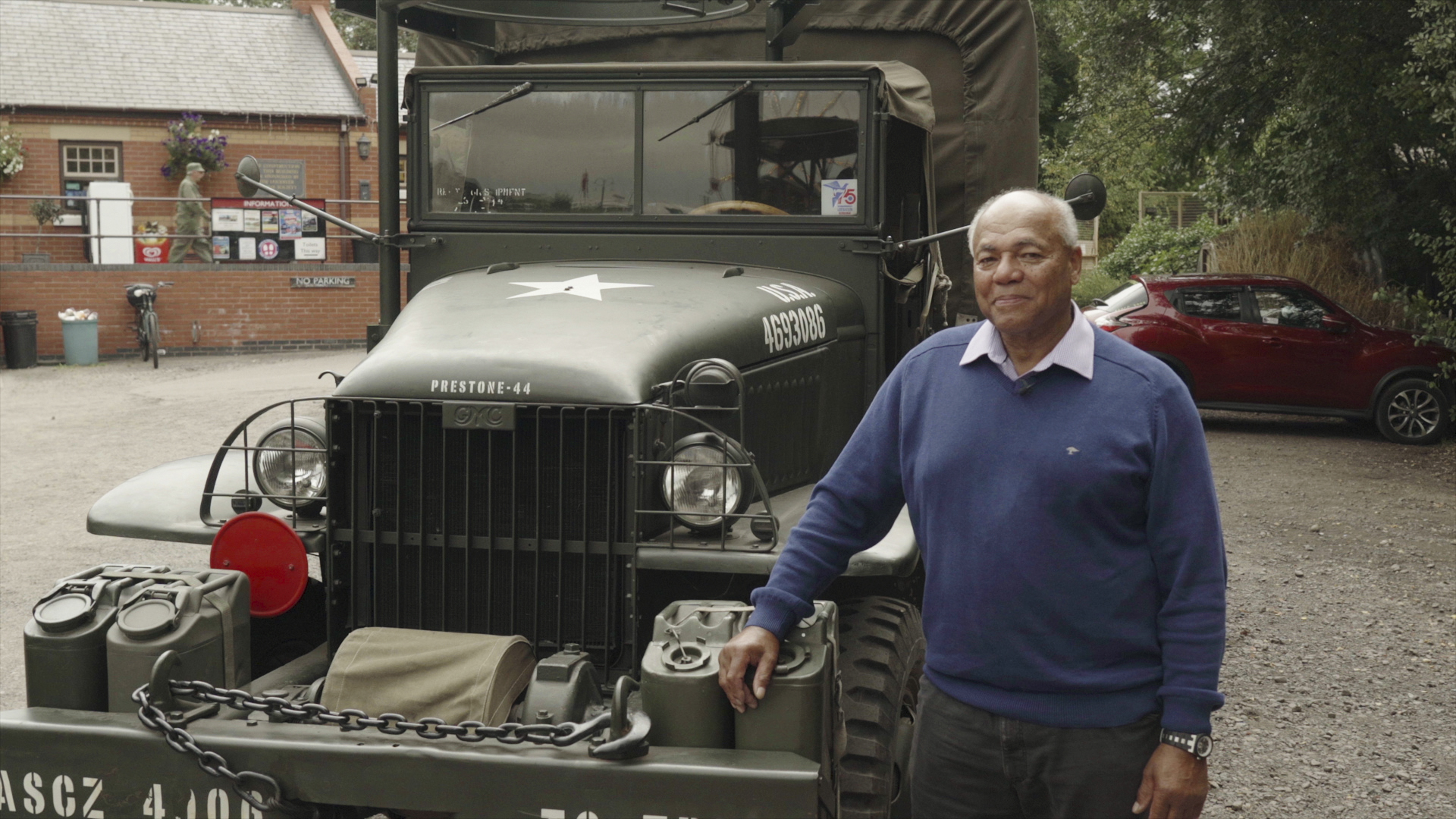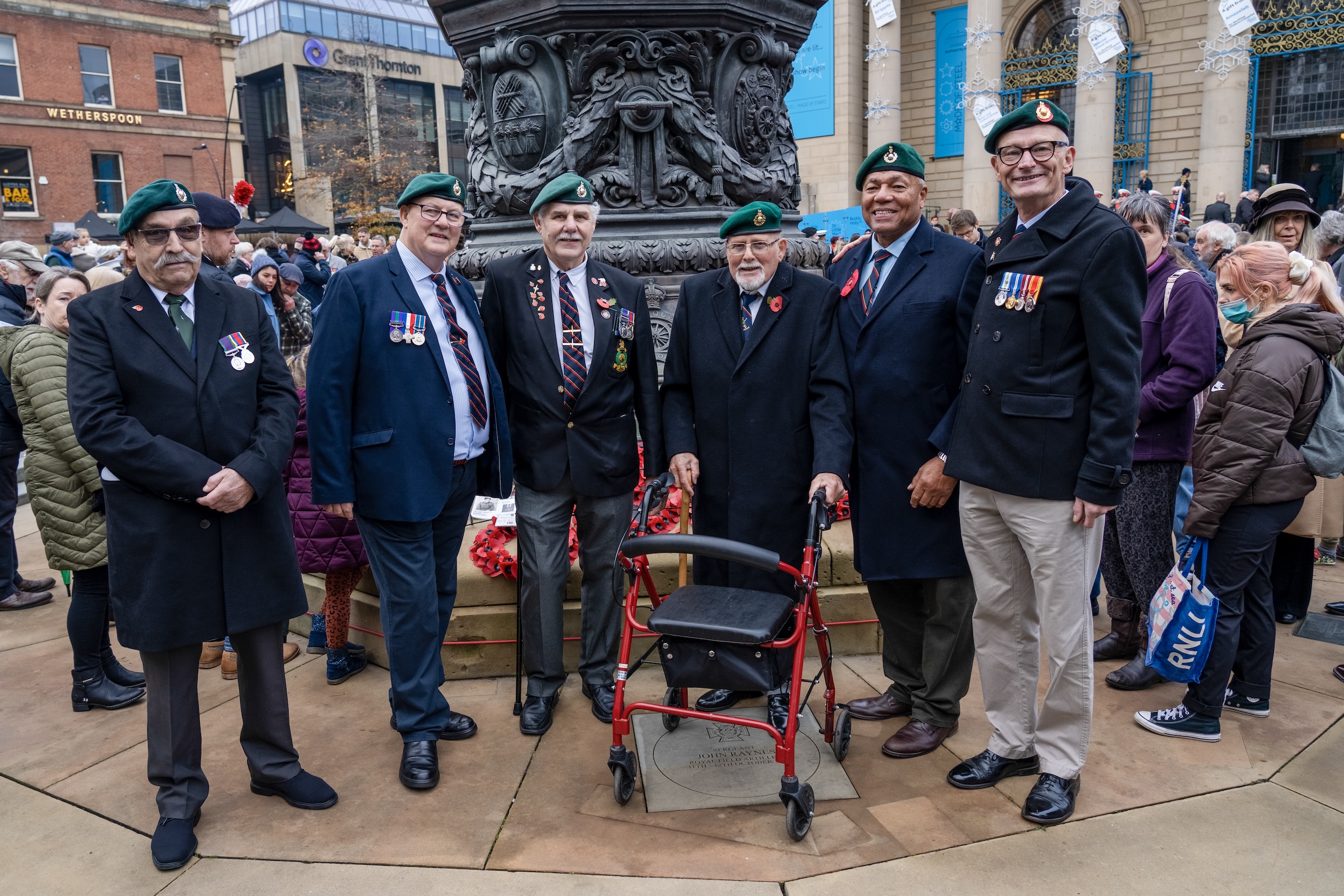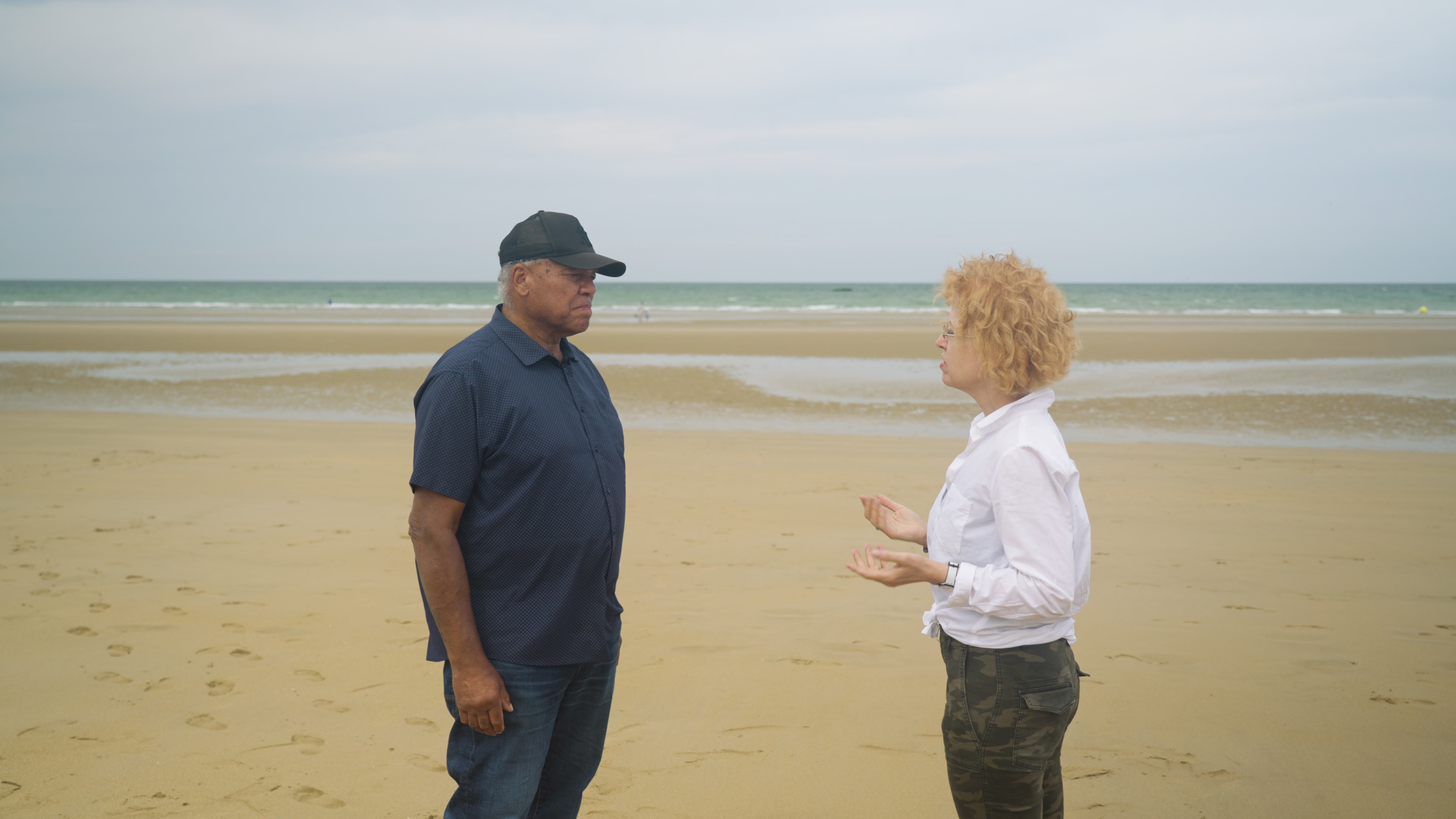Winner of Best Feature Documentary at London Breeze Film Festival 2025
Next screening at The Beaufort International Film Festival on the 18th of February 2026
Synopsis
Terry from Leicester is on an emotional quest to trace his GI dad and learn about the lives of African American soldiers based in Britain during WW2. This epic journey takes Terry from his home town of Leicester to South Carolina, Washington DC and the Northern Beaches of France.
Country: UK and USA
Year: 2025
Runtime: 87mins
Filmmaker
Jonathan Beamish is an award winning director and producer who works across broadcast TV, content and indepependent film.
His films have been in competition at Edinburgh, The BFI London Film Festival, Cannes, Venice, Berlin and AFI Docs in Washington. His documentary The Foreshore won best film at the EIFA European Independent Film Awards.
Key Credits
Director: Jonathan Beamish
Producers: Jonathan Beamish and Ray Maginley
Production company: Local Colour
Background
In 1943 and 1944, major race riots erupted in Lancashire, Leicester, Bristol and Cornwall. But these weren’t riots involving British people. The fighting on the streets involved African American soldiers, stationed in Britain, rioting against their own US military police and the Jim Crow segregation being enforced.
The dramatic consequences that followed would change civil rights in Britain and America but also leave over 2,000 children of African American GIs born in Britain cut off from their fathers.
Winner of Best Feature Documentary at London Breeze Film Festival 2025
Next screening at The Beaufort International Film Festival on the 18th of February 2026
Synopsis
Terry from Leicester is on an emotional quest to trace his GI dad and learn about the lives of African American soldiers based in Britain during WW2. This epic journey takes Terry from his home town of Leicester to South Carolina, Washington DC and the Northern Beaches of France.
Country: UK and USA
Year: 2025
Runtime: 87mins
Filmmaker
Jonathan Beamish is an award winning director and producer who works across broadcast TV, content and indepependent film.
His films have been in competition at Edinburgh, The BFI London Film Festival, Cannes, Venice, Berlin and AFI Docs in Washington. His documentary The Foreshore won best film at the EIFA European Independent Film Awards.
Key Credits
Director: Jonathan Beamish
Producers: Jonathan Beamish and Ray Maginley
Production company: Local Colour
Background
Although Terry never knew his black GI dad, he followed him in pursuing a military career, in his case becoming a Royal Marines Commando.
Terry is also a charity campaigner, a keen gardener and proud Leicester City FC supporter. For all his achievements, including becoming a magistrate, not knowing who his real father was left a void in his life.
Many of the ‘Brown Baby’ GI children were given up for adoption or grew up in foster care. Growing up in white communities they lacked black or mixed race role models. Many experienced persistent racism.
Although Terry’s mum did keep him, she suffered abuse for it and he had a difficult upbringing with the stigma of illegitimacy hanging over him and a denial of his identity and Black American heritage.
Since his mother died, Terry has been on a quest to find out the truth about his GI father.
His journey took a major new turn as a result of DNA testing and the help he received from the charity GI Trace.
The documentary follows Terry as he meets his American family in South Carolina and completes his journey on Omaha Beach where his father would have come ashore during Operation Overlord in 1944.
![]()
![]()
Many of the ‘Brown Baby’ GI children were given up for adoption or grew up in foster care. Growing up in white communities they lacked black or mixed race role models. Many experienced persistent racism.
Although Terry’s mum did keep him, she suffered abuse for it and he had a difficult upbringing with the stigma of illegitimacy hanging over him and a denial of his identity and Black American heritage.
Since his mother died, Terry has been on a quest to find out the truth about his GI father.
His journey took a major new turn as a result of DNA testing and the help he received from the charity GI Trace.
The documentary follows Terry as he meets his American family in South Carolina and completes his journey on Omaha Beach where his father would have come ashore during Operation Overlord in 1944.

